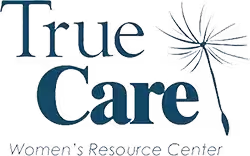February is known at the month of love. Valentine’s Day brings thoughts of romance, yet many dating relationships are not as healthy and happy as they should be. February is also Teen Dating Violence Awareness Month. Sadly, statistics indicate that dating violence is not uncommon.
Studies show that 1 in 3 young people will be in an abusive or unhealthy relationship, and that nearly 1.5 million high school students are physically abused by a relationship partner every year. Young women aren’t the only victims; boys also report being physically abused by someone with whom they’re involved. More than 10 percent of high school boys reported being physically or sexually abused by a dating partner in 2013.
Other startling and scary statistics:
- Young women between the ages of 16 and 24 experience the highest rate of intimate partner violence — almost triple the national average.
- 43% of dating college women report experiencing violent and abusive dating behaviors.
- 16% college women has been sexually abused in a dating relationship.
- Violent relationships in adolescence can have serious ramifications by putting the victims at higher risk for substance abuse, eating disorders, risky sexual behavior and further domestic violence.
- Being physically or sexually abused makes teen girls six times more likely to become pregnant and twice as likely to get an STD (sexually transmitted disease).
- Half of youth who have been victims of both dating violence and rape attempt suicide, compared to 12.5% of non-abused girls and 5.4% of non-abused boys.
- Violent behavior typically begins between the ages of 12 and 18.
An Unknown Issue
A majority of parents surveyed believe teen dating violence is not an issue or admit they don’t know if it’s an issue. Most said they feel confident that they could recognize the signs if their child was experiencing dating abuse; however, a majority of parents (58%) could not correctly identify all the warning signs of abuse. Those include:
- The partner is extremely jealous or possessive.
- Unexplained marks or bruises.
- Excessive emails or texts.
- Depression and/or anxiety in one of the relationship partners.
- A person stops participating in activities s/he used to enjoy and looked forward to.
- The person stops spending time with other friends and family members.
- Abuse of other people and/or animals by the violent partner.
How to Know if You’re in an Unhealthy Relationship
Unhealthy relationships are based on power and control, not equality and respect. In the early stages of an abusive relationship, you (or the person you love that’s in such a relationship) may not think the partner’s unhealthy behaviors are a problem. However, possessiveness, insults, jealous accusations, yelling, humiliation, pulling hair, pushing, name-calling or other negative, behaviors, are — at their root — exertions of power and control. You may not be able to change the abuser, but you can change the situation. Get out of an abusive relationship, whether dating seriously or casually. You deserve to be respected – there is no excuse for abuse.
Find Help
There are many organizations that can help someone who is experiencing dating abuse. Speak to a law enforcement advocate, a counselor, or a person associated with a safe house in your community. In Casper, contact the Natrona County Sheriff’s Department Victims Services at 235-9298 or the Self Help Center at 235-2894. You can also call the Domestic Violence Hotline at 1-800-799-SAFE (7233).
If you think you might be pregnant from a sexually abusive situation, contact True Care’s Scheduling Line by phone or text at 307-215-9684 to schedule your free pregnancy and std tests.
